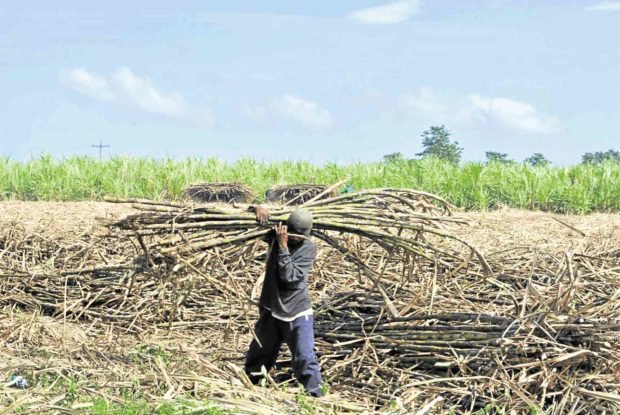
A farmer harvest sugarcane. (File photo from Philippine Daily Inquirer)
BACOLOD CITY – Tourism Secretary Bernadette Romulo-Puyat has identified the sugar industry as a “sweet” part of the country’s road to recovery from COVID-19.
Speaking during the virtual 67th Philippine Sugar Technologists Association’s annual national convention on Wednesday, Puyat said there are many ways the sugar industry and the tourism industry can merge to create new offerings and revenue streams.
“Let us leverage our sugar-producing regions’ heritage and industrial capabilities to develop a strong sense of place, each with its own particular narrative and unique sites,” she said.
The Philippine sugar industry contributes significantly to the Gross Domestic Product of the country, with not less than P70 billion annually.
With 23.3 million metric tons of cane cultivated in approximately 398,478 hectares of farmlands in 17 provinces, Puyat said there are about 630,000 farmers dependent on the industry for livelihood and income.
“The pandemic did not affect the sugar industry in Negros. In fact, at the end of 2020, the sugar industry posted about 50 percent higher than the previous crop year in terms of gross tons of cane milled as sugarcane workers were allowed to keep on working during the pandemic,” she said.
For Negros Occidental, including Bacolod City, the decline in tourist arrivals was at 78.22 percent. From 1.5 million tourists in 2019, there were only 345,000 tourists in 2020. Tourism receipts also decreased from P30.2 billion in 2019 to just P6.5 billion last year.
“Diversifying into tourism would provide an alternative source of revenue, and sugar stakeholders may want to consider transforming part of their plantations into a farm tourism destination to create new tourism products that appeal to the pandemic and post-pandemic traveler,” Puyat said.
She said any tour to a sugar plantation will necessarily touch upon history as well as highlight its agricultural and industrial sides. A tour can show the journey of sugar production starting from the sugarcane harvest to its crushing, milling, and refining.
Puyat said sugar-producing countries have already started offering sugar estate tours, telling the story of the importance of sugar in the founding of the nation, its dark history of slavery, and how a modern-day sugar factory operates.
“Certainly, our country has its own unique and fascinating sugar narratives that can be brought to life in various ways,” she added.